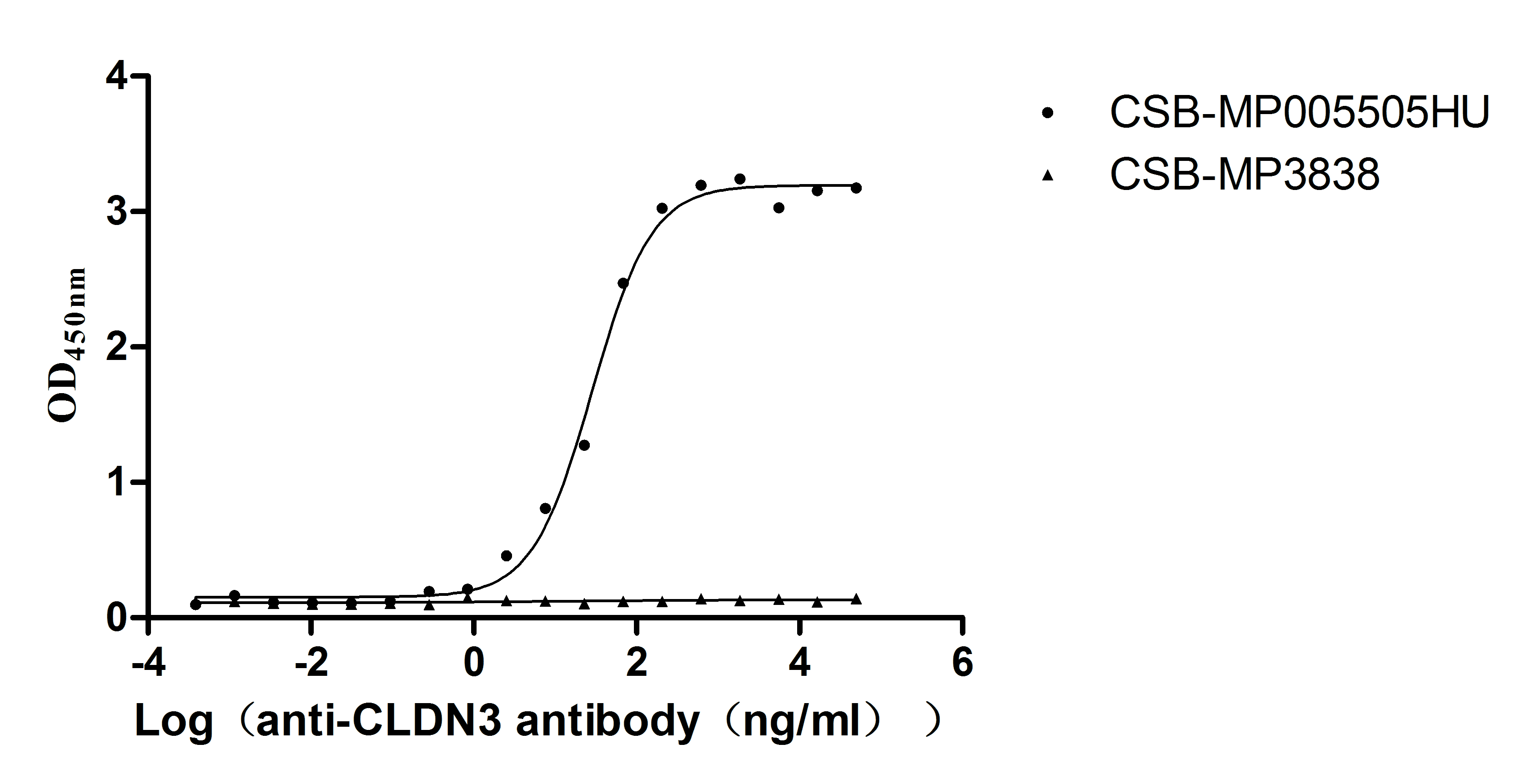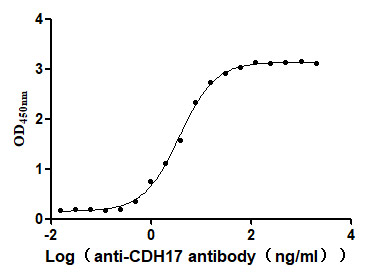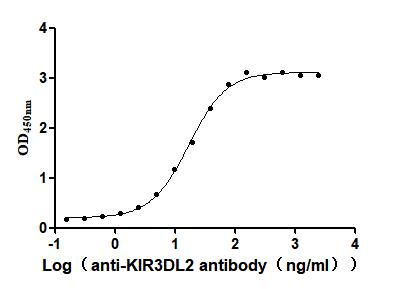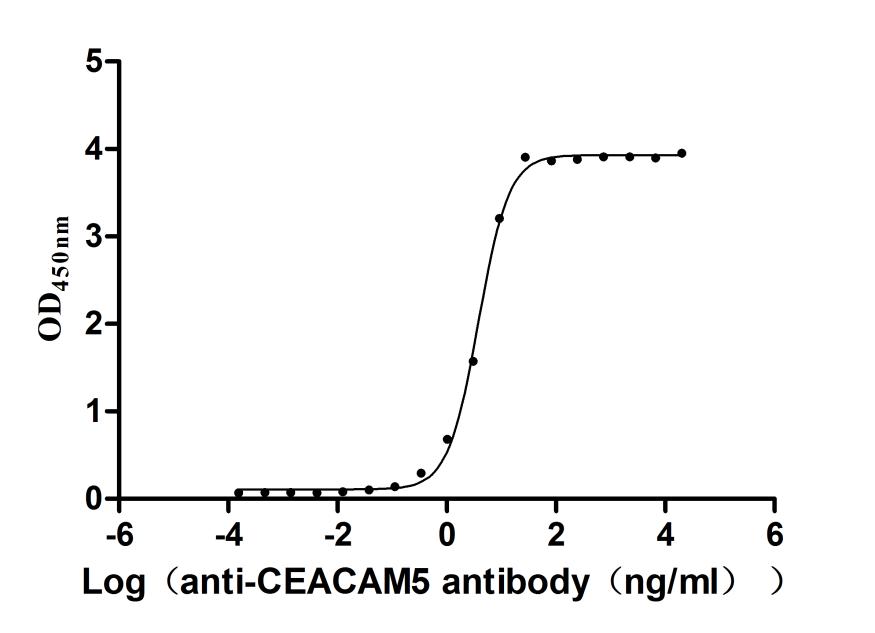Recombinant Escherichia coli Small-conductance mechanosensitive channel (mscS), partial
-
货号:CSB-YP314762ENV1
-
规格:
-
来源:Yeast
-
其他:
-
货号:CSB-EP314762ENV1
-
规格:
-
来源:E.coli
-
其他:
-
货号:CSB-EP314762ENV1-B
-
规格:
-
来源:E.coli
-
共轭:Avi-tag Biotinylated
E. coli biotin ligase (BirA) is highly specific in covalently attaching biotin to the 15 amino acid AviTag peptide. This recombinant protein was biotinylated in vivo by AviTag-BirA technology, which method is BriA catalyzes amide linkage between the biotin and the specific lysine of the AviTag.
-
其他:
-
货号:CSB-BP314762ENV1
-
规格:
-
来源:Baculovirus
-
其他:
-
货号:CSB-MP314762ENV1
-
规格:
-
来源:Mammalian cell
-
其他:
产品详情
-
纯度:>85% (SDS-PAGE)
-
基因名:mscS
-
Uniprot No.:
-
别名:mscS; yggB; b2924; JW2891; Small-conductance mechanosensitive channel
-
种属:Escherichia coli (strain K12)
-
蛋白长度:Partial
-
蛋白标签:Tag type will be determined during the manufacturing process.
The tag type will be determined during production process. If you have specified tag type, please tell us and we will develop the specified tag preferentially. -
产品提供形式:Lyophilized powder
Note: We will preferentially ship the format that we have in stock, however, if you have any special requirement for the format, please remark your requirement when placing the order, we will prepare according to your demand. -
复溶:We recommend that this vial be briefly centrifuged prior to opening to bring the contents to the bottom. Please reconstitute protein in deionized sterile water to a concentration of 0.1-1.0 mg/mL.We recommend to add 5-50% of glycerol (final concentration) and aliquot for long-term storage at -20℃/-80℃. Our default final concentration of glycerol is 50%. Customers could use it as reference.
-
储存条件:Store at -20°C/-80°C upon receipt, aliquoting is necessary for mutiple use. Avoid repeated freeze-thaw cycles.
-
保质期:The shelf life is related to many factors, storage state, buffer ingredients, storage temperature and the stability of the protein itself.
Generally, the shelf life of liquid form is 6 months at -20°C/-80°C. The shelf life of lyophilized form is 12 months at -20°C/-80°C. -
货期:Delivery time may differ from different purchasing way or location, please kindly consult your local distributors for specific delivery time.Note: All of our proteins are default shipped with normal blue ice packs, if you request to ship with dry ice, please communicate with us in advance and extra fees will be charged.
-
注意事项:Repeated freezing and thawing is not recommended. Store working aliquots at 4°C for up to one week.
-
Datasheet :Please contact us to get it.
相关产品
靶点详情
-
功能:Mechanosensitive channel that participates in the regulation of osmotic pressure changes within the cell, opening in response to stretch forces in the membrane lipid bilayer, without the need for other proteins. Contributes to normal resistance to hypoosmotic shock. Forms an ion channel of 1.0 nanosiemens conductance with a slight preference for anions. The channel is sensitive to voltage; as the membrane is depolarized, less tension is required to open the channel and vice versa. The channel is characterized by short bursts of activity that last for a few seconds.
-
基因功能参考文献:
- inactivation process of wild-type MscS was strongly affected by voltage. The wild-type MscS inactivated at +60 to +80 mV but not at -60 to +40 mV. PMID: 28101504
- Mutations in a conserved domain of E. coli MscS to the most conserved superfamily residue leads to kinetic changes. PMID: 26340270
- Molecular dynamics and biophysical analyses show that the volume of the pockets and thus the number of lipid acyl chains within them decreases upon channel opening. PMID: 26551077
- Data show that trifluoroethanol (TFE) affects mechanosensitive channel of small conductance (MscS) channel gating kinetics in spheroplasts and liposomes. PMID: 26116700
- Data indicate that mechanosensitive channel of small conductance (MscS) protein opens in response to a relief of intrinsic lipid bilayer pressure. PMID: 25450806
- We report here crystal structures of MscS from E. coli and Helicobacter pylori solubilized in the detergent beta-dodecylmaltoside at resolutions of 4.4 and 4.2 A, respectively. PMID: 23339071
- Article reviews the science that led to the isolation and identification of MscS. structure-function relationship of the channel, in particular the structural and biochemical approaches to understanding channel gating. [Review] PMID: 22404681
- Data show that the MscL/MscS threshold ratio dramatically decreased in thinner compared with thicker bilayers. PMID: 22586095
- Tension dependencies of both inactivation and recovery rates suggest the spatial scale of the inactivating transition, which guides the modeling of the inactivated state of MscS. PMID: 21670207
- Both F68S and L111S in MscS substitutions produced severe loss-of-function phenotypes in vivo by increasing the inactivation rate and promoting unusual 'silent' inactivation from the resting state PMID: 20208543
- the crystal structure of MscS does not represent an open state; MscS gate involves a vapor-lock mechanism where limited changes of geometry or surface polarity can locally switch the regime between water-filled (conducting)& empty (nonconducting) states PMID: 15111405
- The crystal structure of MscS reveals a homoheptamer with three transmembrane segments and a large cytoplasmic domain PMID: 17500538
- Analysis of the fluorescence properties of purified mutant MscS proteins containing single Trp residues revealed that W16 and W251 are relatively inaccessible, whereas W240 is accessible to quenching agents. PMID: 17718516
- Transition to this unique mechanosensitive channel state is discussed in terms of existing data. PMID: 18065458
- study presents a 3.45 angstrom-resolution structure for the MscS channel in an open conformation; structure suggests a molecular mechanism that underlies MscS gating and its decay of conductivity during prolonged activation PMID: 18755969
- determination of structural rearrangements associated with MscS activation in membranes; transition from closed to open state is accompanied by downward tilting of the transmembrane TM1-TM2 hairpin & by expansion, tilt & rotation of the TM3 helices PMID: 18755978
- MscL and MscS are tangible models for studying conformational transitions in membrane proteins driven directly by membrane tension. PMID: 19383606
显示更多
收起更多
-
亚细胞定位:Cell inner membrane; Multi-pass membrane protein.
-
蛋白家族:MscS (TC 1.A.23) family
-
数据库链接:
KEGG: ecj:JW2891
STRING: 316385.ECDH10B_3099
Most popular with customers
-
Recombinant Human papillomavirus type 16 Protein E7 (E7) (Active)
Express system: E.coli
Species: Human papillomavirus type 16
-
Recombinant Human Prolactin receptor (PRLR), partial (Active)
Express system: Mammalian cell
Species: Homo sapiens (Human)
-
Recombinant Human V-set and immunoglobulin domain-containing protein 4 (VSIG4), partial (Active)
Express system: Mammalian cell
Species: Homo sapiens (Human)
-
Recombinant Human Dickkopf-related protein 1 (DKK1) (Active)
Express system: Mammalian cell
Species: Homo sapiens (Human)
-
Recombinant Human Claudin-3 (CLDN3)-VLPs (Active)
Express system: Mammalian cell
Species: Homo sapiens (Human)
-
Recombinant Human Cadherin-17 (CDH17), partial (Active)
Express system: Mammalian cell
Species: Homo sapiens (Human)
-
Recombinant Human Killer cell immunoglobulin-like receptor 3DL2 (KIR3DL2), partial (Active)
Express system: Mammalian cell
Species: Homo sapiens (Human)
-
Express system: Mammalian cell
Species: Macaca mulatta (Rhesus macaque)


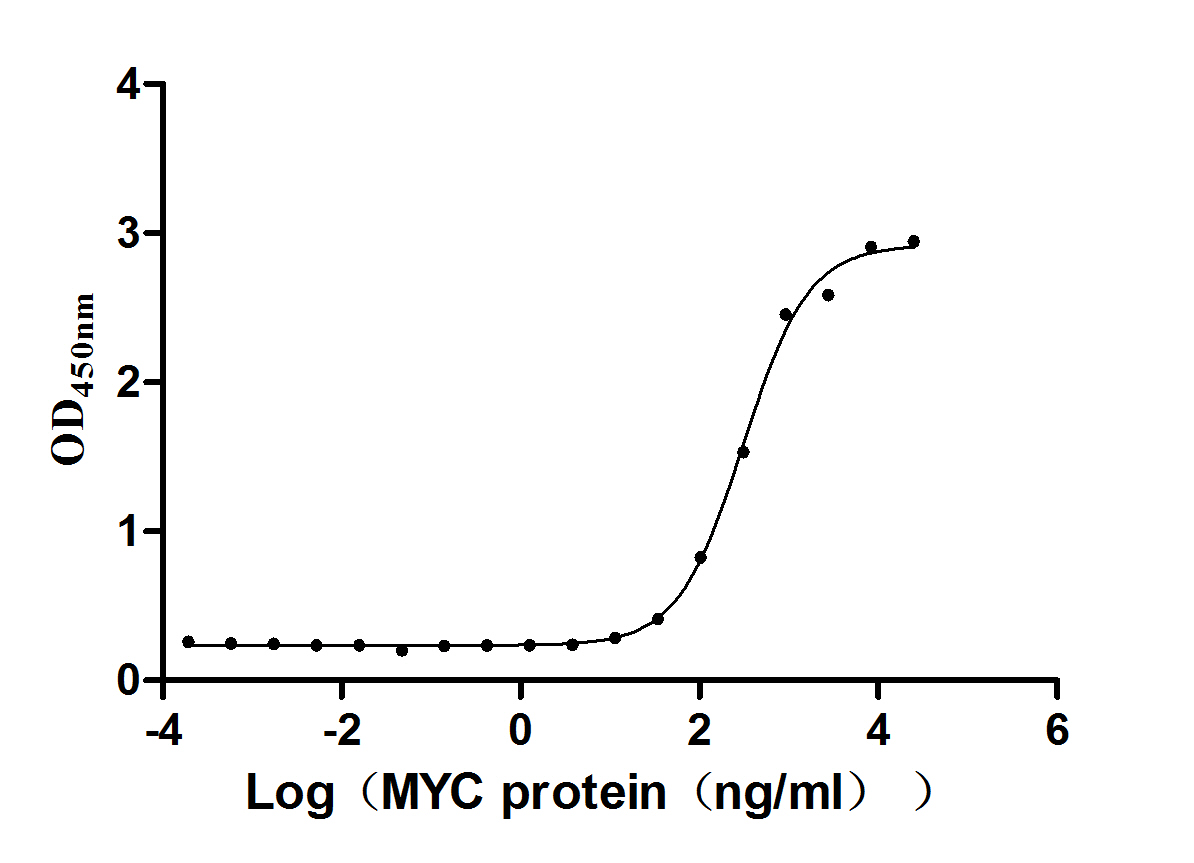
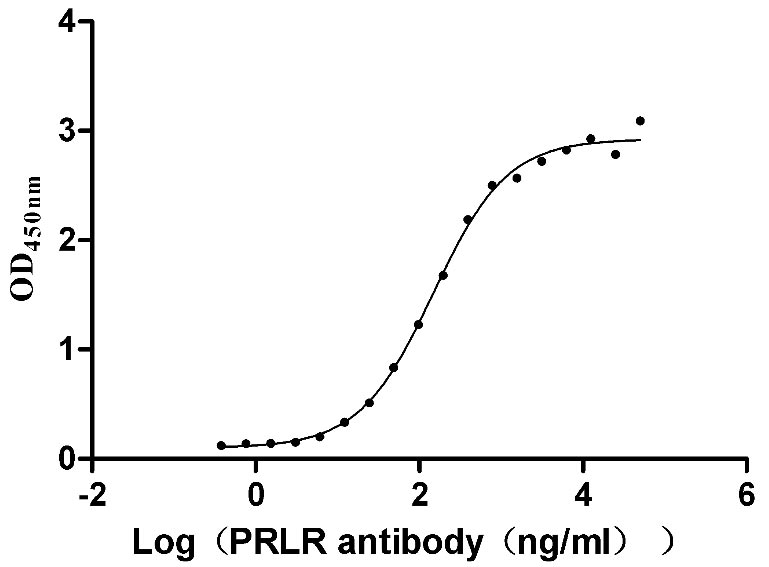
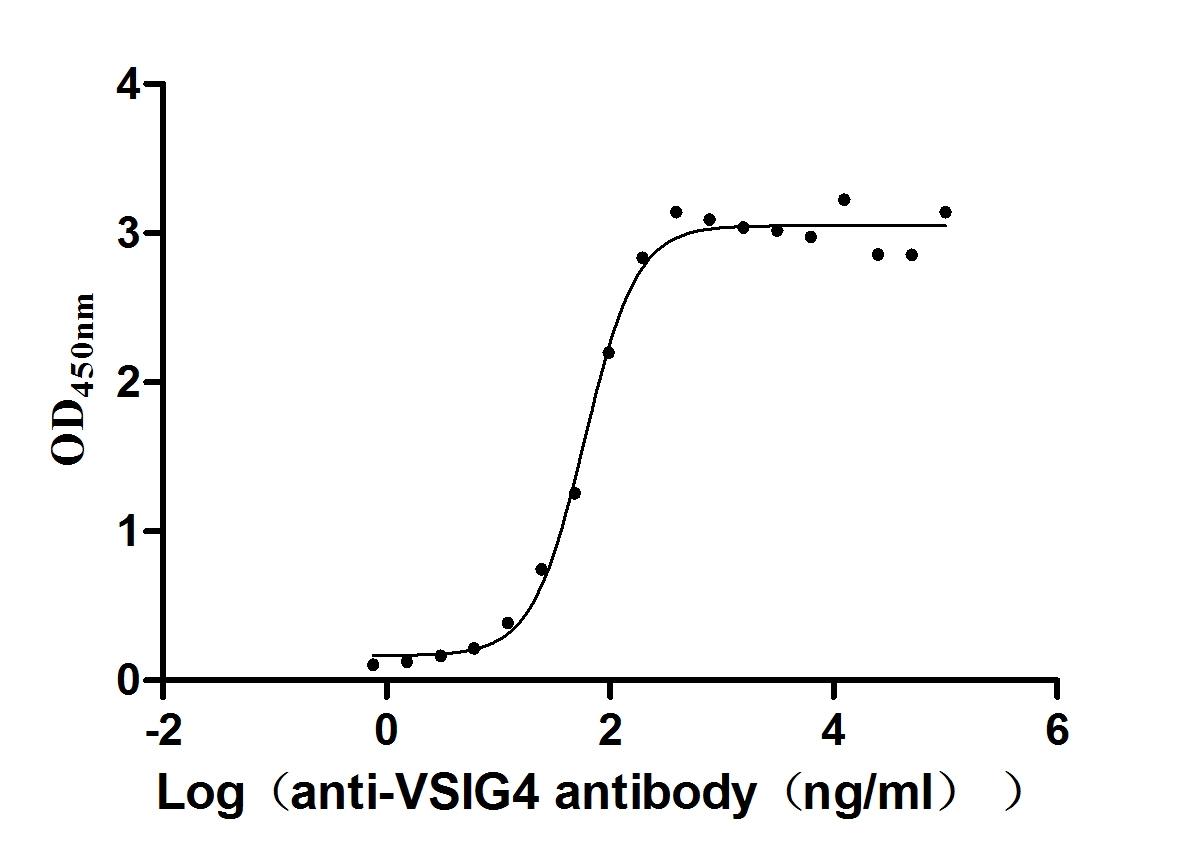
-AC1.jpg)
